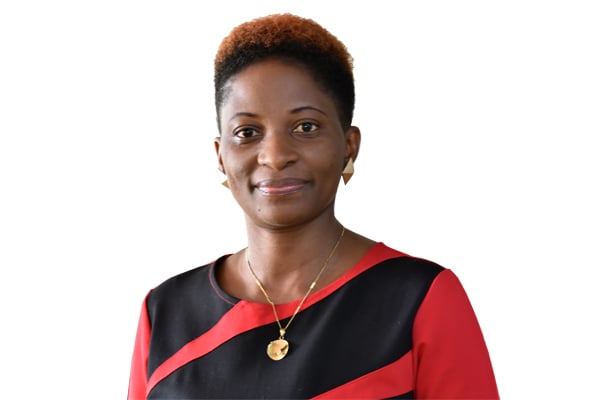Prime
On the 60th, we revisit why Britain bossed us

Author: Charles Onyango Obbo. PHOTO/FILE
What you need to know:
- So, first, British rule lasted as long as it did, partly because it was an internal meritocracy.
On Sunday, October 9, Uganda celebrated its 60th anniversary of independence from British colonial rule.
Invariably, questions were asked of the colonial experience and the independence project.
There was a time when President Yoweri Museveni used to ask hard questions about complex and uncomfortable subjects like the slave trade and colonialism (the failure of African kings and societies to fend off the colonialists, and the mortgaging of chiefdoms for mirrors, whiskey, and bracelets).
ALSO READ: We are of Uganda, but is Uganda ours?
Museveni argued that colonialists overcame African societies because they were “technologically backward” (i.e. didn’t have sophisticated weapons) and weren’t united.
In Uganda and Africa in general, this study of why colonialists subjugated us has not been done seriously. The question of why having taken over, they then succeeded in lording it over millions of people with just a handful of colonial officials has even been less examined.
We will never really conquer the future until we understand why we failed.
In all this, I was reminded of one of my favourite films, “We Were Soldiers”, starring Mel Gibson as Lt. Col. Hal Moore.
It’s the story of the first major battle of the American phase of the Vietnam War, the Battle of Ia Drang. It’s one of America’s most dramatic victories, which, according to one view, in turn, emboldened it to double down on a war that would be one of its most catastrophic defeats and failures.
Before going to lead the troops, Lt. Col. Moore studied the
Battle of Mang Yang Pass, one of the last battles of the First Indochina War, which took place on June 24, 1954. It was one of the bloodiest defeats of the French Union forces, who were slaughtered in large numbers by the Viet Minh forces. Moore’s understanding of why the French were routed handed him a victory in what otherwise looked like very dire circumstances.
We need to study our defeat likewise.
This is how colonial Uganda was administered between 1890 and 1962/1963.
- Frederick John Lugard (Military administrator), December 1890 – May 1892
COMMISSIONERS:
-Sir Gerald Herbert Portal, April 1893 – May 30, 1893
-James Ronald Leslie MacDonald, May 30, 1893 – November 4, 1893 (acting)
-Sir Henry Edward Colville, November 4, 1893 – May 10, 1894
-Frederick Jackson, May 10, 1894 – August 24, 1894 (acting)
-Ernest James Berkeley, August 1894 – December 1899
-Sir Harry Hamilton Johnston, December 1899 – November 1901
-Sir James Hayes Sadler, January 1, 1902 – November 20, 1907
-Sir Henry Hesketh Joudou Bell, November 20, 1907 –January 31, 1910
-Sir Harry Edward Spiller Cordeaux, February 1, 1910 – October 18, 1910
COLONIAL GOVERNORS 1910–1962
-Sir Harry Cordeaux: 1910–1911
-Sir Frederick Jackson: 1911–1918
-Sir Robert Coryndon: 1918–1922
-Sir Geoffrey Archer: 1922–1925
-Sir William Gowers: 1925–1932
-Sir Bernard Henry Bourdillon: 1932–1935
-Sir Philip Mitchell: 1935–1940
-Sir Charles Dundas: 1940–1945
-Sir John Hathorn Hall: 1945–1952
-Sir Andrew Cohen: 1952–1957
-Sir Frederick Crawford: 1957–1961
-Sir Walter Coutts: 1961–1962 (also Governor-General from
October 9, 1962 – October 9, 1963).
You will notice that only three governors, Frederick Jackson, William Gowers, and John Hathorn Hall, were in the seat for seven years. Otherwise, the average tenure of colonial commissioners and governors was three years.
To appreciate that, one has to read about the type of people the commissioners and governors. Many were as different as day and night; some had an enlightened view about independence for the “natives”, and others had a very regressive view. They had wildly varying views of the development of the colonies, investment in infrastructure, name it. Rotating them in and out regularly allowed the British colonial regime to bring the diversity of their views to bear on the colony.
All of them had three things in common: they had travelled the world widely and served in many roles in the British Empire before they were posted to be commissioner or governor; they were well educated or read (a couple of them were ornithologists – studied birds, or were botanists), had educative hobbies (explorers, artists), and being Old British, had high-class connections or had married well.
Most of them were far more educated than all previous post-independent Ugandan Prime Ministers and presidents, barring Prof. Yusuf Lule (April 13, 1979 – June 20, 1979).
SEE PICTURES: Independence: Uganda then and now
Besides being an explorer, botanist, artist, and linguist, Governor Johnston spoke many African languages. He published 40 books on Africa, more than all Ugandan presidents and ministers combined in the last 40 years.
So, first, British rule lasted as long as it did, partly because it was an internal meritocracy. Secondly, it profited from leadership term limits. On the 60th anniversary, and in the fog of the continuing anti-colonial war, we must never lose sight of the enemy’s strengths.
Mr Onyango-Obbo is a journalist, writer and curator of the “Wall of Great Africans”. Twitter@cobbo3





